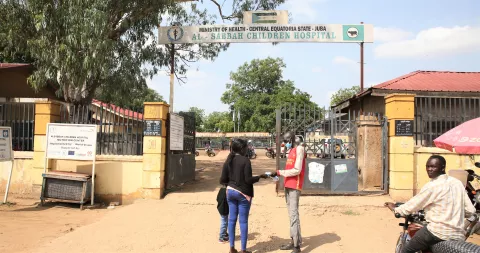When information is the only treatment
Raising awareness on the Coronavirus Disease in South Sudan

With the first cases of Coronavirus disease confirmed in South Sudan, the country is at high alert. Since there is no vaccine nor a cure, information about how to protect yourself and your family is the only way to stop the spread of the disease.

UNICEF is leading the risk communication efforts on COVID-19 together with the Ministry of Health. By using UNICEF's existing network of mobilisers, UNICEF was able to quickly start disseminating critical messages to the population in South Sudan.
Raising awareness on signs and symptoms is one of the core messages. Fever, dry cough, difficulty in breathing and tiredness are some of the most common symptoms on Coronavirus disease

UNICEF is disseminating information through posters in public places and leaflets. The community mobilisers are walking from door to door, but is not gathering a lot of people like they would normally do, to maintain social distancing as a preventive measure.
Other preventive measures are frequent handwashing with soap and water, stop shaking people's hands, cover your nose and mouth with a tissue or cough and sneeze in your flexed elbow and stay at home if you have flu-like symptoms.

The mobilisers are using megaphones to spread messages in common areas such as markets, others are walking along the streets giving the messages.

Radio remains the most important communication channel in South Sudan. Low literacy levels makes it difficult for people to access written information, hence the importance of having an oral medium. Furthermore, the key messages are easily translated and explained in local languages when you do it orally, noting South Sudan has over 60 different languages in the country.

UNICEF is extremely proud of all the social mobilisers we have across the country who are tirelessly working to provide people with the correct information in order for them to make good decisions about their health and ultimately their lives.
UNICEF's COVID-19 risk communication efforts are conducted in partnership with the World Bank and supported by UK Aid.




